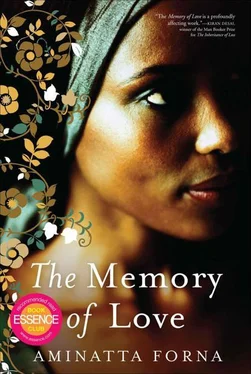It is as close as he has ever come to praise.
Attila drops Adrian off outside the government building and walks away, leaving Adrian standing in the car park. As he makes his way to the main road to hail a taxi he considers Attila’s words. He recalls the conversation with Kai, two months ago now, after the attack by Agnes’s son-in-law. This is our country . He was rejecting Adrian’s offer of help. It was this that had stung so much, the idea he was neither wanted nor needed. It had simply never occurred to him.
Attila. The man is right, of course. People here don’t need therapy so much as hope. But the hope has to be real — Attila’s warning to Adrian. I fall down, I get up. Westerners Adrian has met despise the fatalism. But perhaps it is the way people have found to survive.
Saturday. The air is so still the woodsmoke from cooking fires lifts vertically into the air. The clouds are unmoving in the sky. Everything is quiet. No traffic on the roads. Even the birds are silent. Adrian is sipping coffee on the verandah of Mamakay’s upstairs neighbour.
‘I should be going,’ he says, meaning the opposite. He wants to know whether she is available for the rest of the day.
‘You can’t.’
He smiles. ‘Can’t I?’ he asks teasingly. ‘Why not?’
And she answers, ‘No, I mean you really can’t go. It’s Cleaning Saturday.’
‘What does that mean?’
‘It means you have to stay in until midday, to clean your yard. Nobody is allowed on the streets except to clean them.’
He has never heard of it before. Mamakay explains. One of the juntas introduced the cleaning days. Their first act in power. By making everyone clean their neighbourhood on the last Saturday of the month they transformed the city. The optimism was short-lived. In the years that followed the capital was sacked twice. Still, Cleaning Saturdays survived and that was something.
‘What can I do?’
‘I was out this morning. Before you woke up.’
The quiet, the absence of traffic on the roads is explained. Now that they are trapped here for two hours Adrian fetches his sketchbook and pencils; he plans to sketch a view of the dovecote, but instead he begins to sketch Mamakay’s profile as she sits with her back to the morning light. He hasn’t attempted a human figure since his days at school. But Mamakay is unselfconscious, does not stiffen or attempt to arrange herself into a more formal or flattering pose, indeed she is not bothered to pose at all and moves as she pleases. Adrian draws freely: a series of small, rough sketches, attempting to capture the curve of her spine, the swell of muscle at the back of her thigh, the line of a heel.
‘Babagaleh tells me you spend time with my father.’ She is sitting on the armrest of the sofa, watching him.
Adrian draws the line from Mamakay’s chin to her collarbone. ‘That’s right.’
‘What does he want?’
‘To talk.’
She nods, rests her chin upon her arm and switches her gaze out over the balcony.
There had always been uncertainty in Adrian’s mind about the exact nature of his relationship with Elias Cole. Elias had never identified a specific problem or asked for help. He certainly didn’t seem to suffer any neuroses. A long time ago, almost from the start, Adrian had given up treating Elias as a case or even a possible case. He kept clinical notes because he felt it was the least that was required of him. Elias seemed to him to be a lonely man in search of a peaceful death. Adrian might have been priest, imam, counsellor or layman.
‘What did Babagaleh say?’ he asks.
‘Nothing.’
‘Really?’
‘He’s a secretive soul. He has learned to hold his counsel. Like everyone else.’
‘What do you mean?’
‘Have you never noticed? How nobody ever talks about anything? What happened here. The war. Before the war. It’s like a secret.’
Adrian remembers his early patients, or would-be patients, their reluctance to talk about anything that had happened to them. He put it down to trauma. Since then he has grown to understand it was also part of a way of being that existed here. He had realised it gradually, perhaps fully only at this moment. It was almost as though they were afraid of becoming implicated in the circumstance of their own lives. The same is true of most of the men at the mental hospital. Questions discomfit them. Remembering, talking. Mamakay is right, it’s as though the entire nation are sworn to some terrible secret. So they elect muteness, the only way of complying and resisting at the same time.
All except Elias Cole. The thought strikes him for the first time. On the paper the line of pencil lead loses its way and tapers off. All except Elias Cole. Adrian frowns, his head still bent to the paper.
Mamakay is speaking. He looks up. ‘Sorry, what?’
‘I asked how your drawings are.’
‘Oh fine. I think. Yes, I’m quite pleased. You’re easy to draw. Does that sound foolish? Perhaps it does.’
‘No,’ says Mamakay. ‘It doesn’t. Though I can’t draw. My mother could draw. Plants. She was a botanist.’
‘What was your home life like?’
‘My parents weren’t especially close, I was the go-between. I remember outings with my mother and outings with my father. I don’t remember any outings with my mother and my father. My mother kept to herself a lot, though she would sometimes take me to collect specimens. I used to dry my own flowers, I had a little press and everything. But I didn’t like the way the pressed flowers looked, the colour and life all gone from them. My father, he took me to Sunday school and told me stories, he talked to me about history.’
‘Is that why you chose history?’
‘Yes. When I was older I was allowed to help with his research, fetching books from the library and marking the relevant pages. It made me feel very important. He took me to the archives at the university. We would discuss subjects, whatever he was writing about. I guess I wanted to please him. As little girls do.’
‘But you never finished your degree.’
‘No.’
Adrian waits for Mamakay to continue, but she does not. For the second time Adrian has a sense of something unspoken. Mamakay breaks her pose and stands up to lean over the balcony. It occurs to him that he has barely ever seen her at the hospital. Only that once, talking with Babagaleh. He’s never seen her visit her father, though imagines she must do. She turns to face him, her back to the light. He cannot read her expression.
‘It’s midday,’ she says. ‘We’re free.’
In the sack carried over his shoulder he had a loaf of stale bread, some onions, a piece of meat wrapped in paper. A man stopped and asked him for food, Kai shook his head, but the man persisted, and reached out to touch Kai. The touch made Kai angry. He knocked the man’s hand away. But the man would not be deterred and touched him again. Kai turned around to confront him and saw it was the soldier from the hospital, unmistakable from the nature of his injury. Part of the man’s face was missing, most of the lower jaw had been blasted away, leaving the roof of his mouth and teeth exposed. He was in the country serving with the foreign task force. Kai had found him sitting on the floor of the hospital corridor, next to a three-hour-old corpse and a pool of oily, blackened blood, lucid still and in remarkably good spirits, believing himself saved. Kai knew he was going to die .
But something was wrong. What was he doing here? Kai could see the huge tongue flapping obscenely as the man tried to talk to him. Kai understood he was hungry and asking for food. Kai didn’t want to give him any, but the ruined face loomed in front of him. He swung the sack from his shoulder and bent to open it, but when he looked up the man was sauntering away down the road, whistling an Elvis song .
Читать дальше












